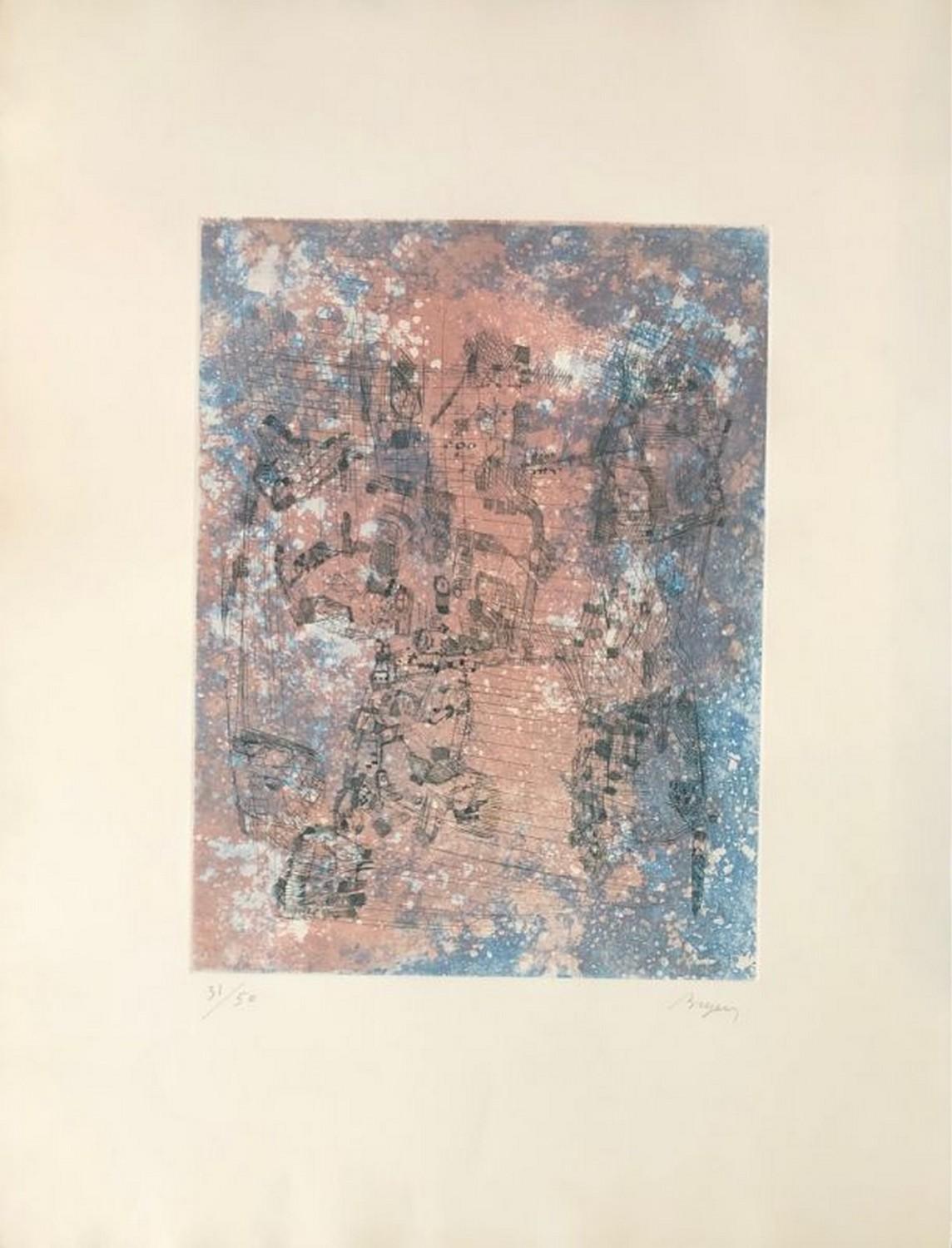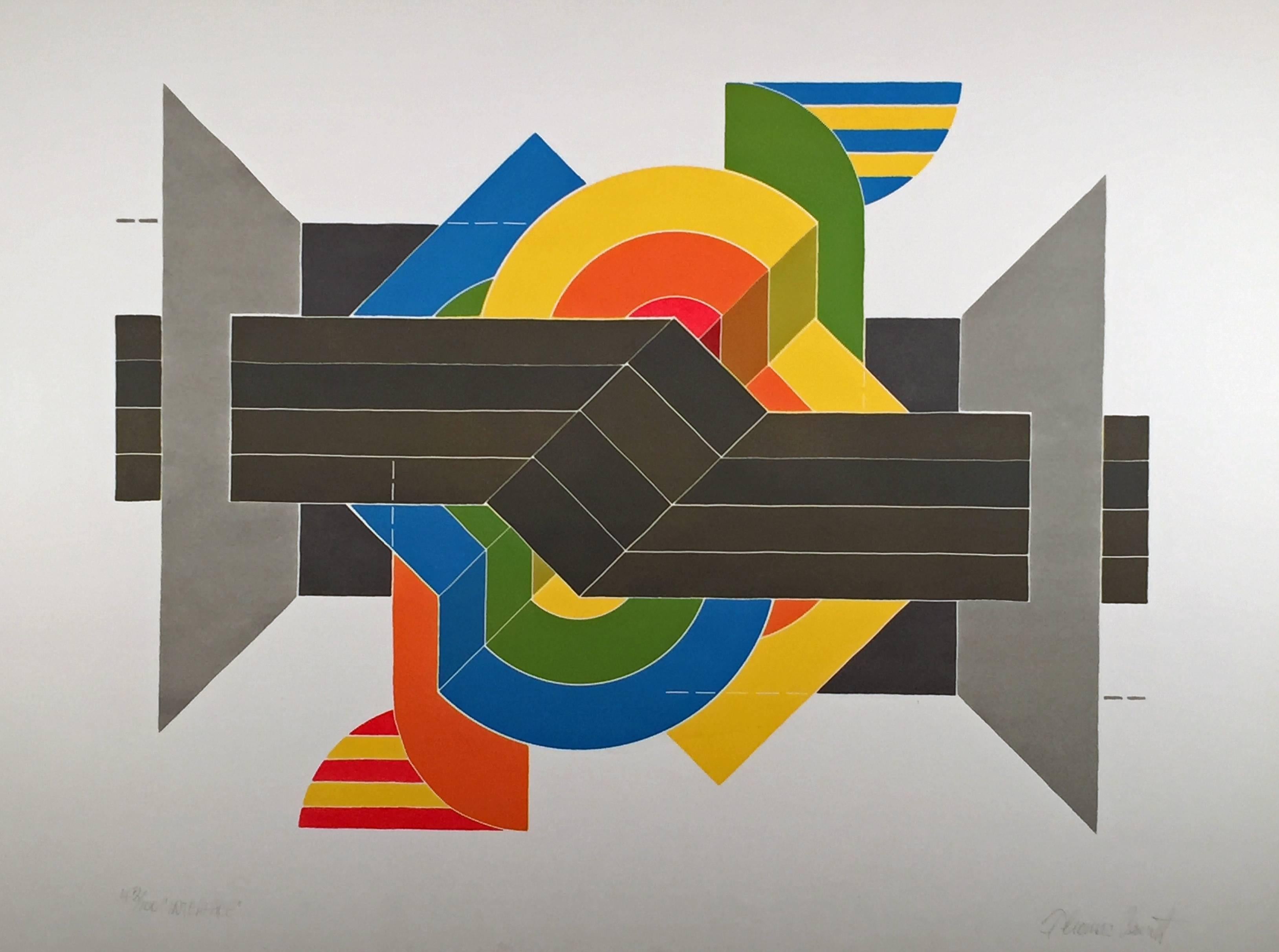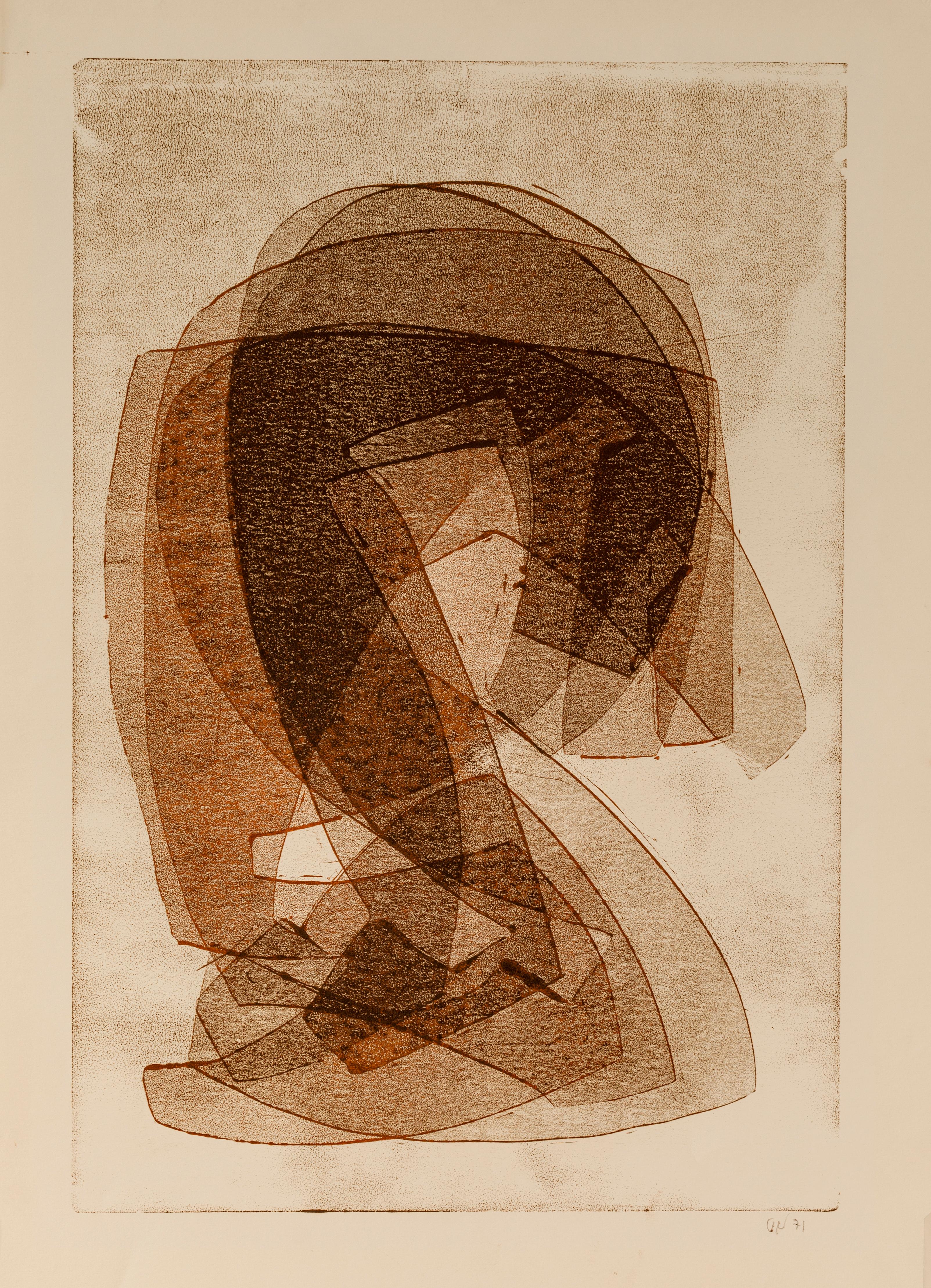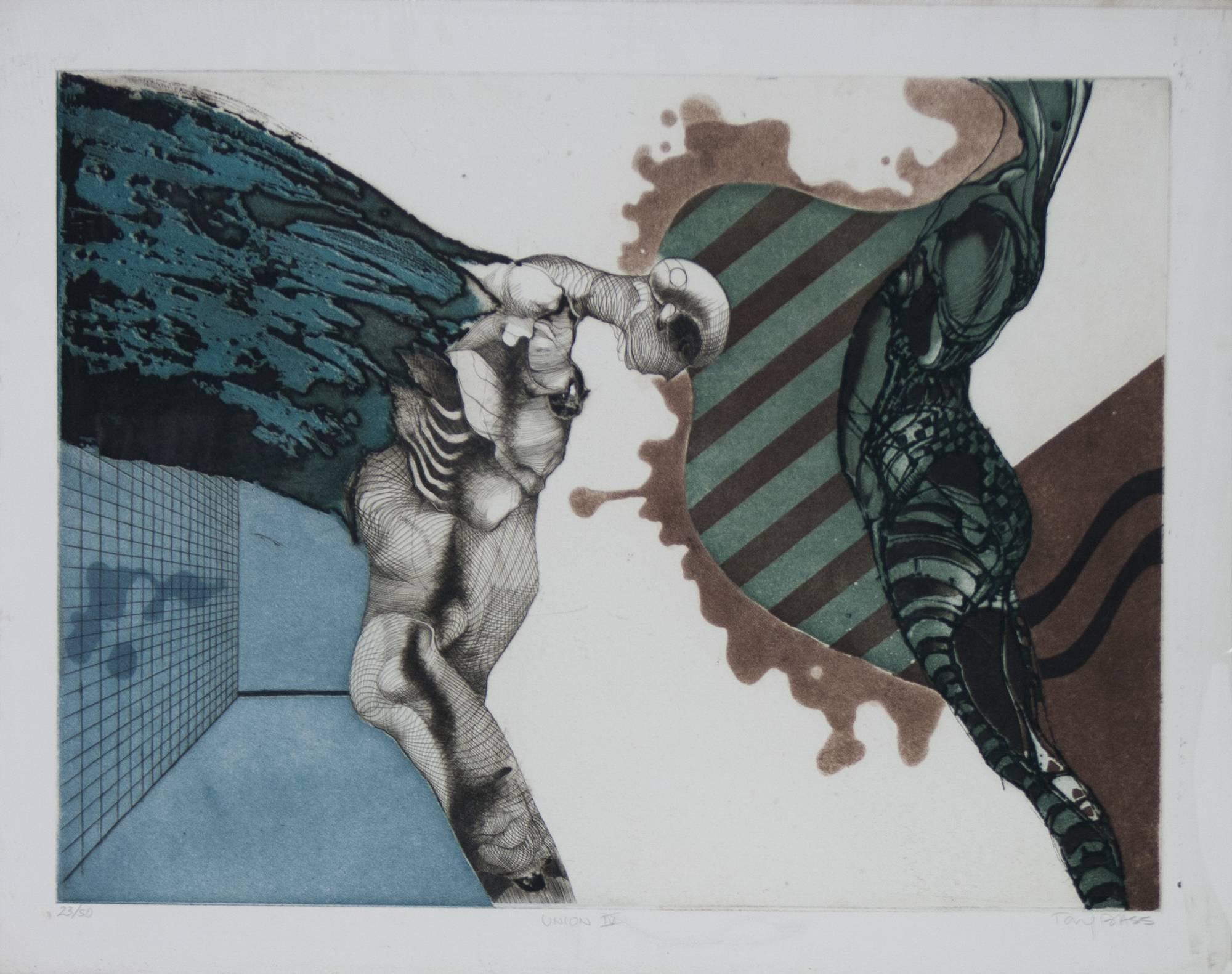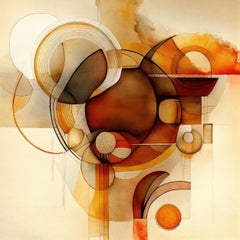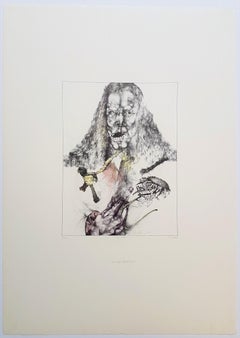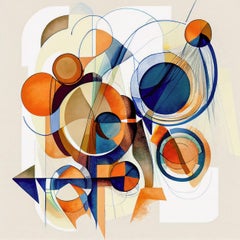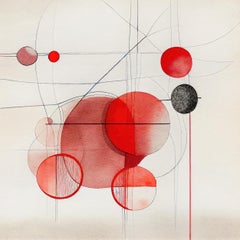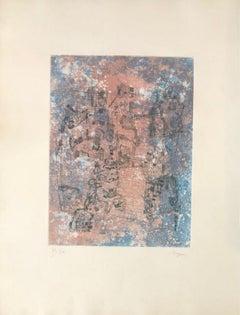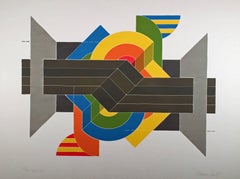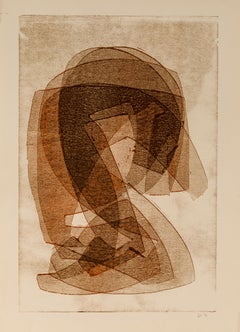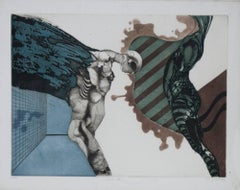Want more images or videos?
Request additional images or videos from the seller
1 of 5
Leonard MarchantTechtite1980
1980
$722.22
$1,10034% Off
£561.04
£854.5134% Off
€636.59
€969.5834% Off
CA$1,032.64
CA$1,572.7934% Off
A$1,129.73
A$1,720.6734% Off
CHF 590.04
CHF 898.6734% Off
MX$13,500.57
MX$20,562.4734% Off
NOK 7,413.01
NOK 11,290.6334% Off
SEK 6,976.82
SEK 10,626.2634% Off
DKK 4,753.94
DKK 7,240.6434% Off
About the Item
Leonard Marchant
Techtite
Messotint Engraving
Year: circa 1980
Size: 13.6x14.75 on 31x23in
Edition: 70
Signed, inscribed and numbered by hand
Drystamp lower left
COA provided
Ref.: 924802-1358
Leonard Marchant RE (October 23, 1929 – January 9, 2000) was a painter and printmaker, particularly admired as a master of the mezzotint.
During his studies at the Central School for Arts and Crafts, Marchant saw the mezzotints of Yozo Hamaguchi, a Japanese artist then living in Paris. During this time, Marchant discovered a mezzotint rocker and rocking pole in a cupboard at the school. “No one knew how to do it any longer so I had to teach myself," he later wrote, “it was an incredibly laborious process. What really appealed to me was the superb richness of the tone”.
Although Marchant continued to paint throughout his life, he was best known for his mezzotints. “With his mezzotints, he touched greatness… Marchant was a master, his needle scratched in the darkness; a candle, a bowl, a cup and saucer gleamed forth.” Liese Van Der Watt said that “Marchant is credited with the revival of this old craft in the (19)60s, especially in Britain.” and "the paintings show the same narrow repetition of a single class of subject, as if the artist's concern is more with technique and medium and with the ojects that are portrayed. But something else has crept into these oils - a sense of purposeful naivety, of magic realism that reminds one vaguely and unexpectedly of the works of Frida Kahlo".
In 1986 Marchant was elected a fellow of the Royal Society of Painter-Printmakers, with whom he exhibited regularly.
In 1963 Marchant joined the staff of the Central School of Arts and Crafts in the Fine Art Etching department where he stayed until 1983. In later years he travelled to other art schools including Royal, Slade, Chelsea, Morley and Winchester, to demonstrate the mezzotint process and illustrate this with his own work
- Creator:Leonard Marchant (1929 - 2000, British)
- Creation Year:1980
- Dimensions:Height: 31 in (78.74 cm)Width: 23 in (58.42 cm)
- Medium:
- Movement & Style:
- Period:
- Framing:Framing Options Available
- Condition:
- Gallery Location:Kansas City, MO
- Reference Number:1stDibs: LU608311786512
About the Seller
5.0
Platinum Seller
Premium sellers with a 4.7+ rating and 24-hour response times
Established in 2016
1stDibs seller since 2017
1,115 sales on 1stDibs
Typical response time: <1 hour
- ShippingRetrieving quote...Shipping from: Kansas City, MO
- Return Policy
More From This Seller
View AllSomething
Located in Kansas City, MO
David Morris
Something
Digital Painting on Archival Paper
Year: 2023
Size: 24x24in
Edition: 15
Signed, numbered and dated by hand on label to be attached verso
COA provided
Ref.: 924...
Category
2010s Surrealist Abstract Prints
Materials
Archival Paper, Archival Pigment
$2,333 Sale Price
40% Off
Er ist tot
By Reiner Schwarz
Located in Kansas City, MO
Reiner Schwarz
"Er ist tot"
From Portfolio "Portrait #11 - Reiner Schwarz" with Karin Szekessy
Year: 1972
Medium: Color Lithograph
Edition: 100
Size: 23.9 x 16.6 in.
Publisher: Diete...
Category
1970s Modern Prints and Multiples
Materials
Lithograph
$300 Sale Price
40% Off
Havona
Located in Kansas City, MO
David Morris
Havona
Digital Painting on Archival Paper
Year: 2023
Size: 24x24in
Edition: 15
Signed, numbered and dated by hand on label to be attached verso
COA provided
Ref.: 924802...
Category
2010s Contemporary Abstract Prints
Materials
Archival Paper, Archival Pigment
$2,344 Sale Price
39% Off
Rockit
Located in Kansas City, MO
David Morris
Rockit
Digital Painting on Archival Paper
Year: 2023
Size: 24x24in
Edition: 15
Signed, numbered and dated by hand on label to be attached verso
COA provided
Ref.: 924802...
Category
2010s Contemporary Abstract Prints
Materials
Archival Paper, Archival Pigment
$2,322 Sale Price
40% Off
Untitled
Located in Kansas City, MO
Unknown Artist
Title: Untitled
Year: 2018
Medium: Lithograph
Size: 18 x 24 inches
COA provided
Category
2010s Contemporary Prints and Multiples
Materials
Lithograph
$99 Sale Price
50% Off
Automne
Located in Kansas City, MO
Johnny Friedlander
Automne
1977
Etching on Arches teinte’ paper
Visible: 10 x 7.25 inches
Framed: 16.375 x 13.5 x 1 inches
Edition: 135
Signed and numbered in pencil along lower edge...
Category
1970s Abstract Abstract Prints
Materials
Etching
You May Also Like
No title
By Camille Bryen
Located in Paris, FR
Engraving
Handsigned by the artist in pencil and numbered 31/50
66.00 cm. x 50.00 cm. 25.98 in. x 19.69 in. (paper)
39.00 cm. x 29.50 cm. 15.35 in. x 11.61 in. (image)
LCD4237
Category
1970s Abstract Abstract Prints
Materials
Engraving
INTERFACE
By Thomas Barrett
Located in Portland, ME
Barrett, Thomas. INTERFACE. Screenprint in colors, not dated. Edition of 100. Numbered 48/100, titled and signed and dated in pencil. 22 1/2 x 28 1/2 inches. In excellent condition.
Category
20th Century Abstract Abstract Prints
Materials
Screen
Estate No. 096009
By Otto Neumann
Located in New Orleans, LA
Otto Neumann (1895-1975) was an expressionist painter and printmaker born in Heidelberg, Germany. He was one of the most versatile and original artists of the twentieth century. Neum...
Category
1970s Abstract Abstract Prints
Materials
Monotype
Union
By Tony Bass
Located in Paonia, CO
Union IV is one of a series of original etching by American artist Tony Bass. Two abstract figures seem to be reaching for each other one on the left being pulled back but tryin...
Category
20th Century Abstract Abstract Prints
Materials
Etching
$1,200
Estate No. 063062
By Otto Neumann
Located in New Orleans, LA
Otto Neumann (1895-1975) was an expressionist painter and printmaker born in Heidelberg, Germany. He was one of the most versatile and original artists of the twentieth century. Neum...
Category
1960s Expressionist Figurative Prints
Materials
Monotype
TLO
By Kathleen Sherin
Located in Buffalo, NY
An original assembled collagraphic monoprint with drypoint by American contemporary artist Kathleen Sherin.
Kathleen began to explore printmaking as a MFA painting student at the ...
Category
2010s Abstract Abstract Prints
Materials
Monoprint
More Ways To Browse
Mezzotint Japanese
Hamaguchi Mezzotints
Tony Awards Signed
Ury Lesser
Used Shamisen
Vienna Opera House
Viktor Shvaiko
Vintage Aquarius Art
Woman In Boat
180 Dessins De Picasso
1940s Framed Japanese Silk Paintings
Al Hirschfeld Hollywood
Bob Dylan Poster
Bob Dylan Posters Vintage
Chagall Unsigned
Chapeau Pierre
Dali Changes In Great Masterpieces
Dali Horse
